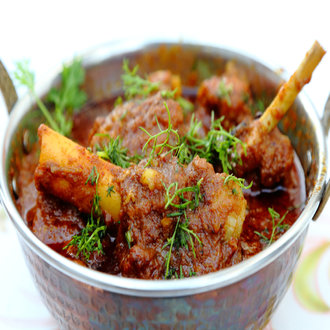7वें वेतन आयोग की सिफारिशें कैबनेट ने मंजूर की, 23 प्रतिशत से अधिक होगी कर्मचारियों की वेतन वृद्धि

आज शाम 5.30 बजे वित्तमंत्री अरुण जेटली इस बारे में औपचारिक रूप से बयान देंगे। जेटली ने एक बयान देकर सरकारी कर्मचारिओं और अफसरों को बधाई दी है। उन्होंने इस बढ़ोतरी को ऐतिहासिक करार दिया है।
एक अधिकारी ने कहा कि ग्रेडेड इंक्रीज इन बेसिक सैलरी पर कैबिनेट ने चर्चा की है। ऐसा माना जा रहा है कि अधिकतर लोगों के लिए 20 प्रतिशत की बढ़ोतरी हुई है। कुछ पदों पर 25 फीसदी की बढ़ोतरी पर चर्चा हुई है।
मिली जानकारी के अनुसार, यह बढ़ा वेतनमान 1 जनवरी 2016 से लागू होगा। अब करीब 15-25 दिनों में सभी विभाग अपने अपने कर्मचारियों के वेतनमान तय कर लेंगे और कहा जा रहा है कि जुलाई में मिलने वाले वेतन में पूरा एरियर और बढ़ा वेतन दे दिया जाएगा।
बीजेपी प्रवक्ता शाहनवाज हुसैन ने एक ट्वीट कर जानकारी दी है कि सरकारी कर्मचारी को 23 प्रतिशत से अधिक सैलरी की वृद्धि मिलेगी।
Cabinet clears final payout based on #7thPayCommission . Government employees to get 23% plus increment in salary.— Shahnawaz Hussain (@ShahnawazBJP) June 29, 2016
वेतन वृद्धि के ऐलान के बाद 50 लाख सरकारी कर्मचारी और 58 लाख पेंशनधारियों के हाथों में ज्यादा पैसा आएगा। कहा जा रहा है कि इस वेतन वृद्धि से रीयल एस्टेट सेक्टर और ऑटोमोबाइल सेक्टर में उछाल आएगा।
आरबीआई ने एक आकलन में अप्रैल में कहा था कि अगर आयोग की रिपोर्ट को ऐसे ही लागू किया गया तो 1.5 फीसदी महंगाई बढ़ जाएगी। वैसे कैबिनेट बैठक में शॉप एंड एस्टैब्लिसमैंट बिल पर चर्चा हुई है। (सातवें वेतन आयोग पर रवीश कुमार का ब्लॉग : सैलरी बढ़ने को तर्कबुद्धि और तथ्यबुद्धि से देखिए... )
इस बढ़े वेतनमान का फायदा 1 करोड़ से ज्यादा सरकारी कर्मचारियों और पेंशनधारियों को मिलेगा। इससे पहले सातवें वेतन आयोग ने अपनी रिपोर्ट में सरकारी कर्मचारियों की बेसिक सैलरी में 14.27 फीसदी बढ़ोत्तरी की सिफारिश की थी। (7वें वेतन आयोग की रिपोर्ट का वह सुझाव जिस पर कई कर्मचारियों को होगी आपत्ति!)
साथ ही आयोग ने एंट्री लेवल सैलरी 7,000 रुपये प्रति महीने से बढ़ाकर 18,000 रुपये प्रति महीने करने का प्रस्ताव सरकार के सामने रखा। (केंद्रीय कर्मचारियों को 7वें वेतन आयोग का लाभ होगा, पढ़ें - क्या थीं आयोग की सिफारिशें)
इनकी बढ़ेगी सैलरी
-सातवें वेतन आयोग ने अपनी रिपोर्ट में सरकारी कर्मचारियों की बेसिक सैलरी में 14.27 फीसदी बढ़ोत्तरी की सिफारिश की थी।
-माना जा रहा है कि कैबिनेट बैसिक सैलरी में 18 से 20 फीसदी तक की बढ़ोत्तरी के प्रस्ताव को मंजूरी दे सकती है।
-इसका फायदा 50 लाख सरकारी कर्मचारियों और 58 लाख पेंशनधारियों को मिलेगा।
-नई सैलरी 1 जनवरी 2016 से लागू होगी, यानी सरकारी कर्मचारियों को छह महीने का एरियर मिलेगा।
-कैबिनेट तय करेगी कि एरियर एक मुश्त दिया जाए या किश्तों में दिया जाए।
-सातवें वेतन आयोग ने इंट्री लेवल सैलरी 7,000 रू प्रति महीने से बढ़ाकर 18,000 रुपये प्रति महीने करने के प्रस्ताव सरकार के सामने रखा।
-कैबिनेट सचिव की मौजूदा सैलरी 90,000 से बढ़ाकर 2.50 लाख रुपये करने की सिफारिश की है।
1 जनवरी 2016 से लागू होंगी सिफारिशें
छठा वेतन आयोग 1 जनवरी, 2006 से लागू हुआ था और उम्मीद है कि सातवें वेतन आयोग की सिफारिशें 1 जनवरी, 2016 से लागू होंगी और कर्मचारियों को एरियर दिया जाएगा। आमतौर पर राज्यों द्वारा भी कुछ संशोधनों के साथ इन्हें अपनाया जाता है। कहा जा रहा है कि नए वेतन ढांचे में सातवें वेतन आयोग ने छठे वेतन आयोग द्वारा शुरू की गई 'पे ग्रेड' व्यवस्था खत्म कर इसे वेतन के मैट्रिक्स (ढांचे) में शामिल कर दिया है और कर्मचारी का ओहदा अब ग्रेड पे की जगह नए ढांचे के वेतन से तय होगा।
सलाना 3% वेतन बढ़ाने की सिफारिश
वित्त मंत्री अरुण जेटली को सौंपी गई वेतन आयोग की रिपोर्ट में मौजूदा कर्मचारियों के मूल वेतन में 16%, भत्तों में 63% और पेंशन में 24% इजाफे की सिफारिश की गई है। न्यायमूर्ति एके माथुर की अगुवाई वाले इस सातवें वेतन आयोग ने सरकारी कर्मचारियों का न्यूनतम वेतन 18 हजार और अधिकतम 2.50 लाख रुपये तय करने की सिफारिश की है। इसके अलावा आयोग ने केंद्रीय कर्मचारियों के वेतन में सालाना तीन फीसदी वृद्धि की भी सिफारिश की है।
सरकारी खजाने पर सलाना 1.02 लाख करोड़ का बोझ
आयोग की सिफारिशें जस की तस लागू करने पर सरकारी खजाने पर 1.02 लाख करोड़ रुपये का सालाना बोझ आएगा, जिसमें 28,450 करोड़ रुपये से अधिक का बोझ रेलवे बजट और बाकी 73,650 करोड़ रुपये आम बजट पर जाएगा।

